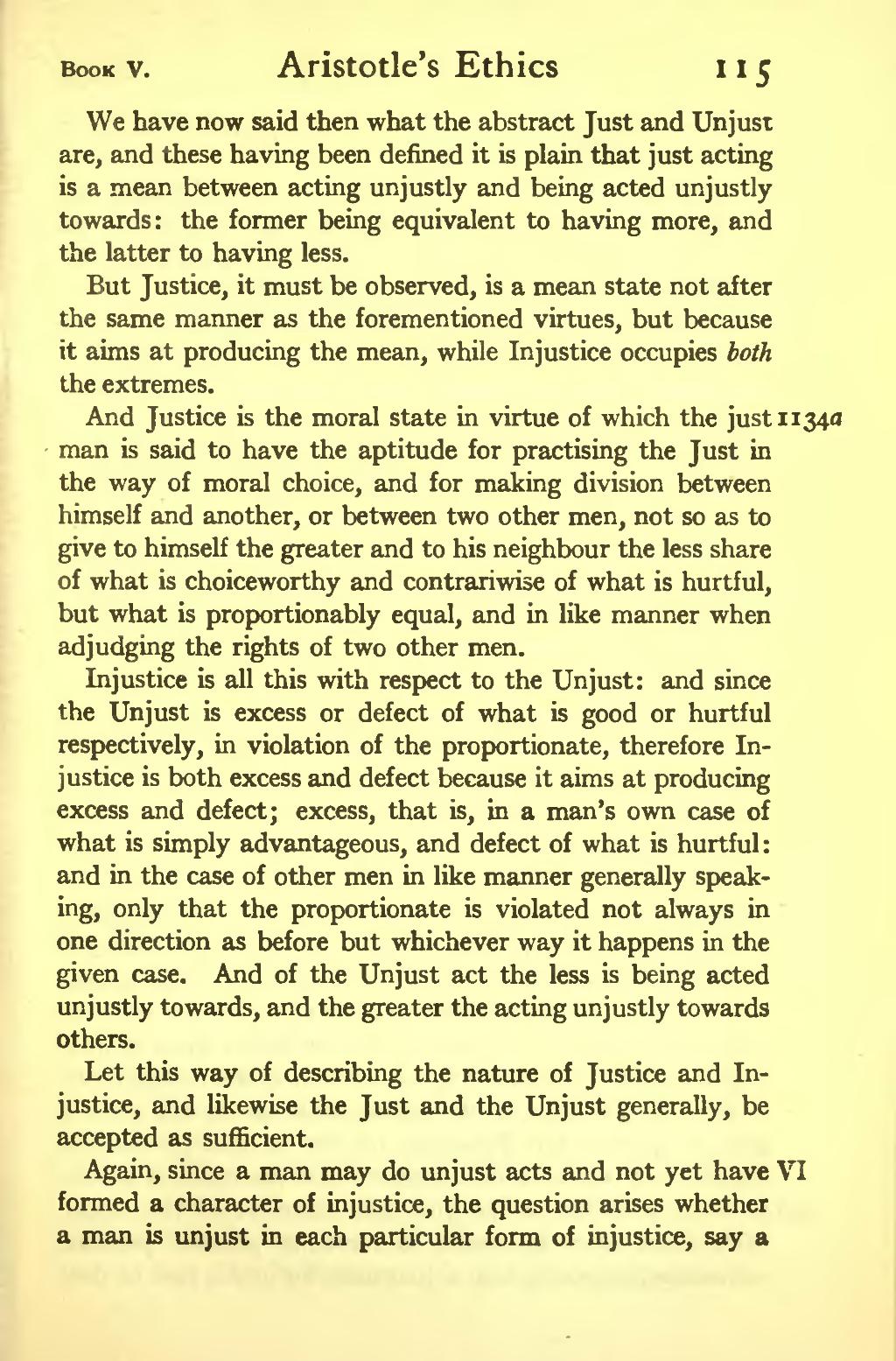We have now said then what the abstract Just and Unjust are, and these having been defined it is plain that just acting is a mean between acting unjustly and being acted unjustly towards: the former being equivalent to having more, and the latter to having less.
But Justice, it must be observed, is a mean state not after the same manner as the forementioned virtues, but because it aims at producing the mean, while Injustice occupies both the extremes.
1134aAnd Justice is the moral state in virtue of which the just man is said to have the aptitude for practising the Just in the way of moral choice, and for making division between himself and another, or between two other men, not so as to give to himself the greater and to his neighbour the less share of what is choiceworthy and contrariwise of what is hurtful, but what is proportionably equal, and in like manner when adjudging the rights of two other men.
Injustice is all this with respect to the Unjust: and since the Unjust is excess or defect of what is good or hurtful respectively, in violation of the proportionate, therefore Injustice is both excess and defect because it aims at producing excess and defect; excess, that is, in a man's own case of what is simply advantageous, and defect of what is hurtful: and in the case of other men in like manner generally speaking, only that the proportionate is violated not always in one direction as before but whichever way it happens in the given case. And of the Unjust act the less is being acted unjustly towards, and the greater the acting unjustly towards others.
Let this way of describing the nature of Justice and Injustice, and likewise the Just and the Unjust generally, be accepted as sufficient.[1]
